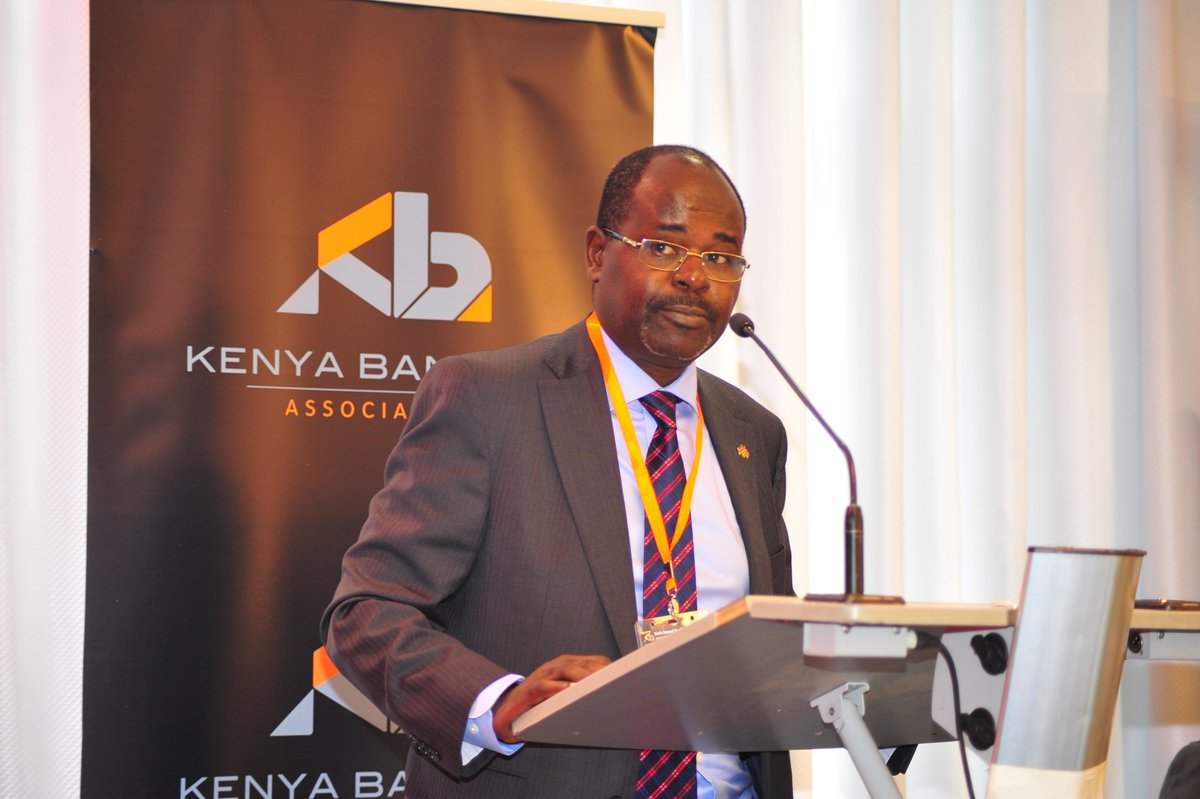The Kenya Bankers Association (KBA) on Thursday 28th September opened the sixth annual banking research conference where five papers were presented to delegates exploring ideas and ways the banking sector can grow and deepen the country’s already impressive financial inclusion record.
The first paper of the conference, titled “Financial Inclusion: How Do You Know That You Are There?” was presented by its authors Jared Osoro, KBA Director of Research and David Muriithi, KBA’s Research Officer. They look at addressing the key question of; when do people consider themselves financially included? The paper anchors its assessment on the distinction between access and usage of financial services and hypothesizes that whilst the former is necessary, it is not sufficient without the latter for one to truly be considered financially included.
Following this, a paper authored by Rogers Ochenge and Tiriongo Samual from Strathmore University was presented titled “Gaps from the Cap: Implications for Financial Inclusion in Kenya”. Through this paper the authors sought to quantify the credit supply gaps that arose following the introduction of the interest rate cap in September 2016. By looking at sample data from 2000 to 2017 they are able to estimate an aggregate decline of 3.5% per month in the private sector. The research also looks at changes in macroeconomic fundamentals that impact credit change. It goes on to model a number of further scenarios and concludes that a careful reassessment of the interest rate law is required and different approaches to addressing the high cost of credit may need to be explored.
Next to present his paper “Credit Risk Analysis for Low-income earners” was Davis Bundi Ntwiga from The University of Nairobi whose proposition was that a mobile based decision support system for credit scoring, classification and peer group lending for low-income earners in Kenya could have a significant positive impact for the target audience.
The penultimate paper of the day was presented Central Bank of Kenya’s Roseline Misati and Ann Kamau titled “Do Migrant Remittances Matter for Financial Development in Kenya”. Here they analysed the nexus between remittances and financial development in the decade up to 2016. Their work finds a strong positive relationship between remittances and the indicators of financial development. They go on to suggest there is a policy window for the Government to leverage on remittances as a tool of financial inclusion and that given the strong relationship between remittances and credit to the private sector other players in the remittance market may also find it useful to develop customized products for migrants that can tap into their remittance.
The final paper of day one was presented by Caspah Lidiema from the United Nations. Titled “Intra-Market Linkaages in the Financial Sector and Their Effects on Financial Inclusion” this important paper looked at the effects between the banking industry and other financial sector segments and the impact of this transmission on financial inclusion in Kenya. The paper calls for formulation of policies that help minimize the adverse effects of volatility and shocks while creating opportunities for growth on each market segment hence fostering price stability and increase investments through financial inclusion.
Prior to the papers being shared, Habil Olaka, KBA’s CEO opened up the conference by saying that it was a great platform for such a timely topic and that he hoped it would trigger insight and ideas from policy makers, sector experts and industry leaders. Going on to say:
“If we are going to be able to tap into the huge potential of those who remain unbanked in this country, it is essential that we try to better understand the link between sustainable economic growth and financial inclusion.
“While we continue to make progress in reforms to build and strengthen the economy and the banking sector, we should keep in mind the fundamental objective to improve all lives; after all that is what financial inclusion is really about.”
Lamin Manjang, Chairman of the KBA also added:
“The benefits of financial inclusion are not only significant for individuals but for economies as well. Financial inclusion is linked to our economic and social development, and pays a role in reducing extreme poverty. Developing inclusive financial systems is indeed an important component for economic and social progress on the development agenda.”
Since 2012, the KBA Centre for Research on Financial Markets and Policy has hosted the Annual Research Conference as its flagship event. Each year the conference showcases emerging insights from a diverse base of authors. The event provides a platform for researchers to engage with policymakers and practitioners, creating a body of knowledge to promote growth, stability and competition in the banking industry, financial sector and the wider economy.



